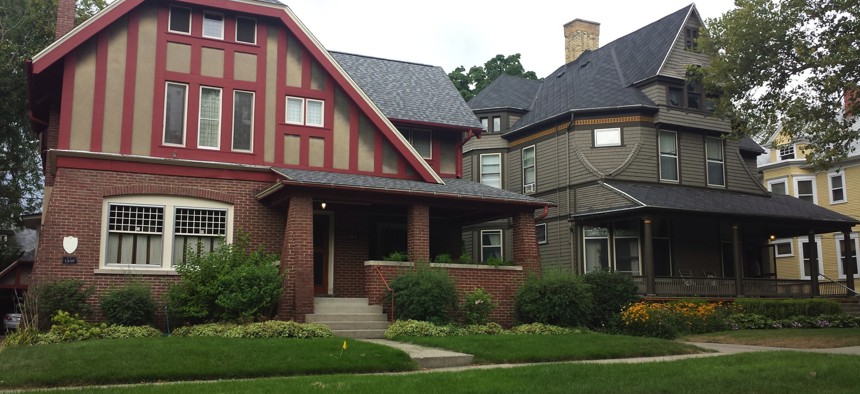Connecting state and local government leaders
There's so much great architecture in Michigan's second-largest city, which should do more to promote it.
Unsolicited Advice is a new Route Fifty occasional feature, where we offer our observations on state, county and municipal governments and the communities they serve.
Grand Rapids, Michigan, has long been called the Furniture City or the Furniture Capital of the World.
But much of the furniture industry left town after World War II. Office furniture is still big in the area—Steelcase and Herman Miller are based nearby—but these days, the local economy is far more diversified having weathered the Great Recession fairly well, especially compared to Southeast Michigan, which was hit hard by the severe downturn in the automotive industry.
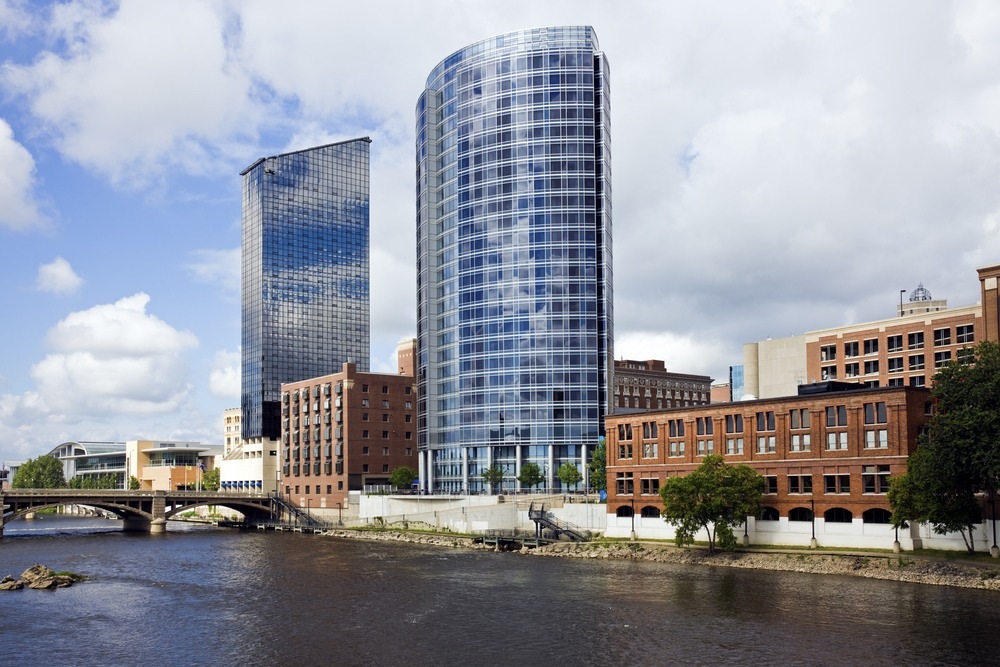
Art and design are also big draws in Michigan’s second-largest city. Right now, Grand Rapids is in the midst of Art Prize, an international public art competition which transforms the cityscape into an expansive gallery, utilizing public and private spaces downtown and in adjacent neighborhoods and drawing thousands to the city over two-and-a-half weeks. It pumps a lot of money into the local economy, especially for restaurants and bars. (I grew up in Grand Rapids and, last year, wrote about the impacts of Art Prize and brownfield redevelopment on the city for Government Executive.)
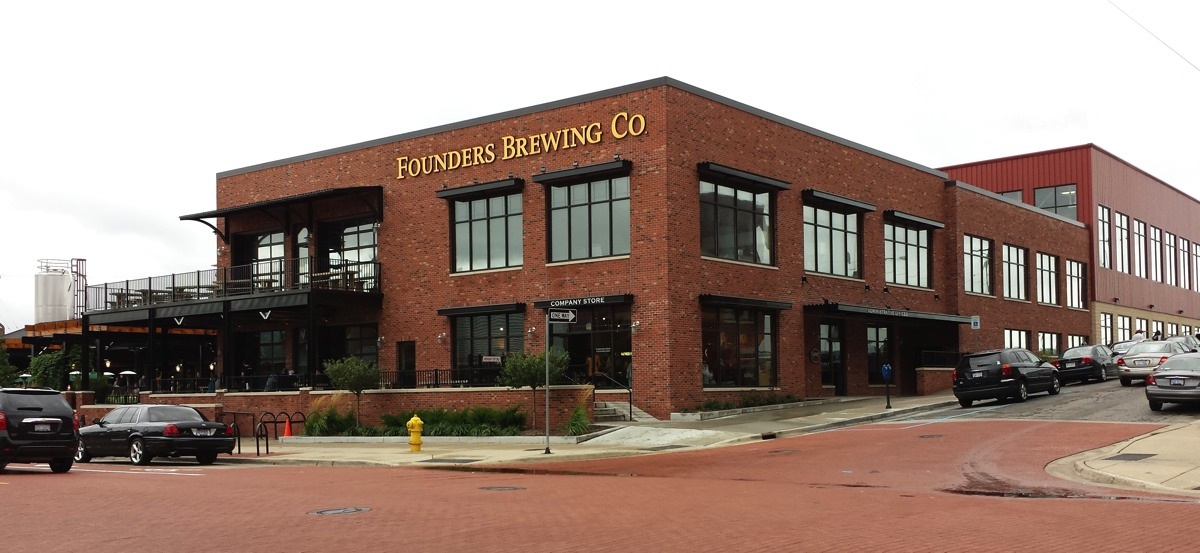
These days, Grand Rapids locals often call their hometown “Beer City USA,” a title it secured through winning an online poll a few years ago. A poll for USA Today readers also named it Best Beer Town:
Grand Rapids earns a spot among the nation's top beer cities with more than a dozen area breweries, including Founder's Brewing Co., as well as one of the top ranked beer bars out, HopCat. "[T]he city really promotes beer," says CEO of Bon Beer Voyage Dr. Ruth Berman. The Convention and Visitors Bureau "does a really great job of promoting the beer as a tourist venue."
While Grand Rapids is certainly a great beer town—I remember when Founders was a small fledging brewery, and it’s great to see the expansion of beer culture in the city—denizens should remember that the “Beer City USA” recognition wasn’t exactly an honor awarded by a panel of distinguished judges or beer experts using a complex comparative methodology. The city won a popularity contest thanks to Grand Rapids’ numerous civic cheerleaders pushing an intensive marketing campaign.
Again, don’t get me wrong: Grand Rapids is a great beer town, and its brewery offerings are worth promoting for economic development purposes. But are there other Grand Rapidian strong suits the city should be pushing as well?
I have something: the city’s architectural offerings should also rise to the top of the city’s marketing efforts. There’s so much, but many Grand Rapidians might not realize the underutilized civic assets in its buildings. But there are reasons why architecture should be trumpeted more by city leaders. Grand Rapids should be a national destination for architecture buffs.
Grand Rapids is home to one of the largest historic districts in the United States.
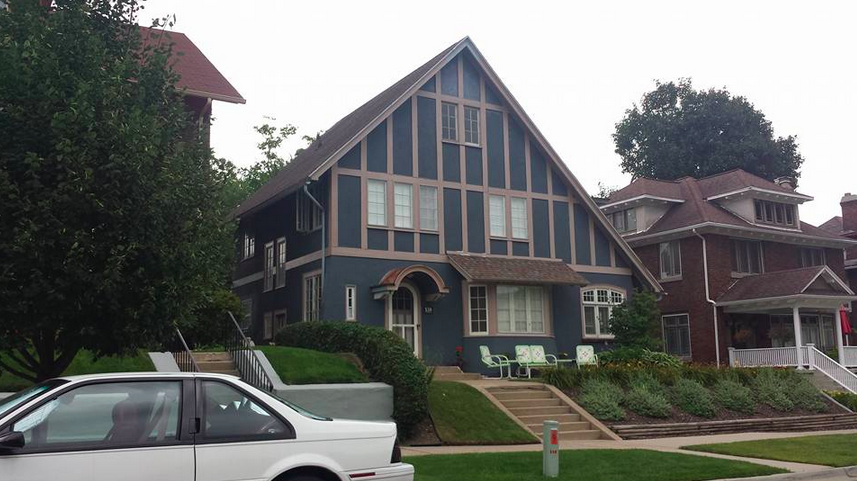
Heritage Hill, east of downtown, is home to a truly wonderful collection of residential architecture, including Greek Revival, Queen Anne, Italianate, Tudor, Craftsman Bungalows and Prairie styles. There are around 1,300 structures in the district, according to the Heritage Hill Association, which sponsors an annual home tour. Even if you’ve explored the neighborhood previously, there are always new homes to discover.
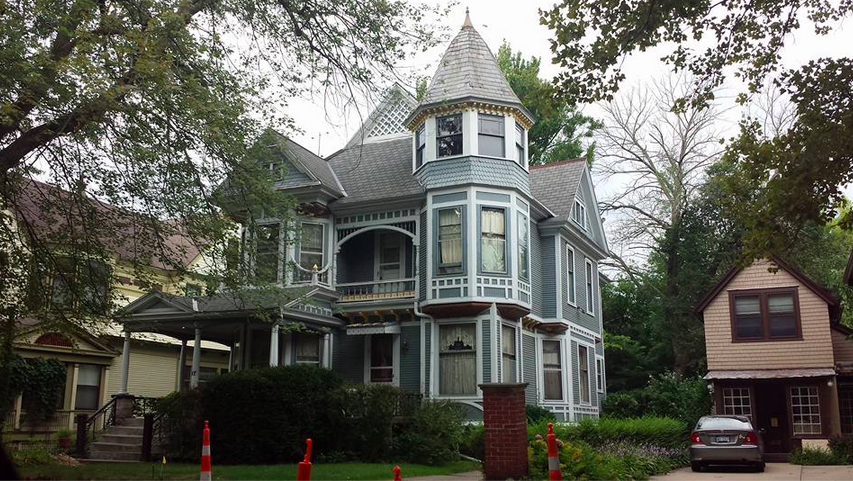
The Meyer May House is among the best preserved examples of Frank Lloyd Wright’s Prairie architecture.
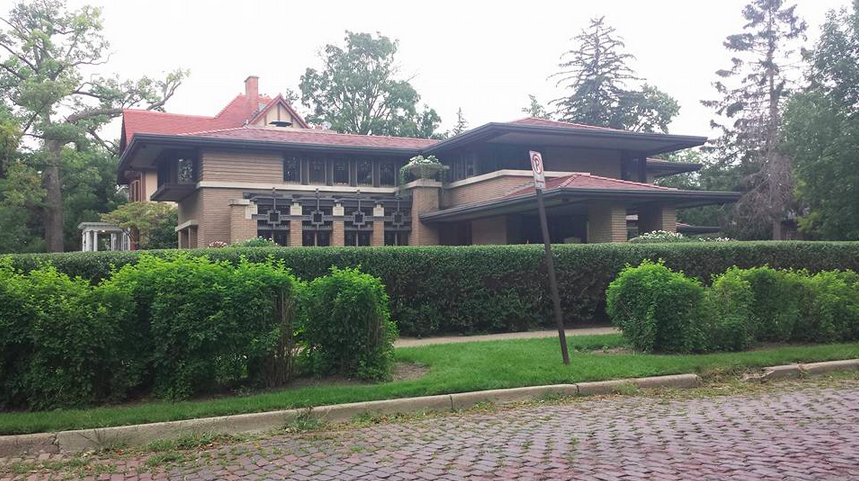
When you’re thinking about Frank Lloyd Wright, the Robie House in Chicago is always regarded as one of the best examples of Prairie architecture anywhere. It’s certainly an impressive house—from the outside. But not much of the interior furnishings remain. It feels somewhat vacant inside.
Grand Rapids can boast that it has the Meyer May House, which is a gem and standout example of the Prairie style completed in 1909. And unlike the Robie House, the interior preservation of the May House is absolutely stunning, thanks to a careful restoration by Steelcase in the 1980s. The house is open to the public and you should visit.
There’s another Wright house down the street ...
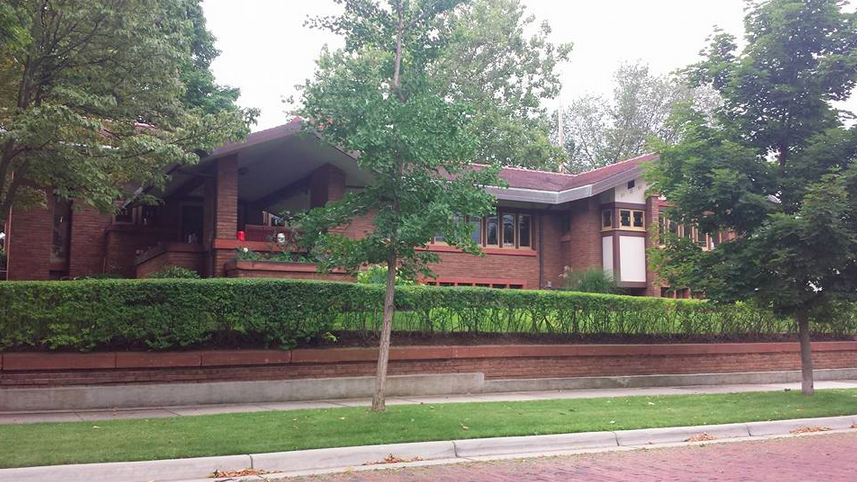
… or at least a house likely designed by one of Wright’s apprentices, Marion Mahoney. (She collaborated with her husband, Walter Burley Griffin, to design Australia’s capital city, Canberra.)
For all that’s been preserved, Grand Rapids is a great place to study the impacts of urban renewal, especially downtown.
Why? Back in the 1960s, Grand Rapids bulldozed a good chunk of its downtown area, including its Gothic-style City Hall and and Romanesque-style County Building, in an attempt to stop the decline of the central business district. (Last year, The Grand Rapids Press revisited the urban renewal scheme in an exemplary multi-part series.)
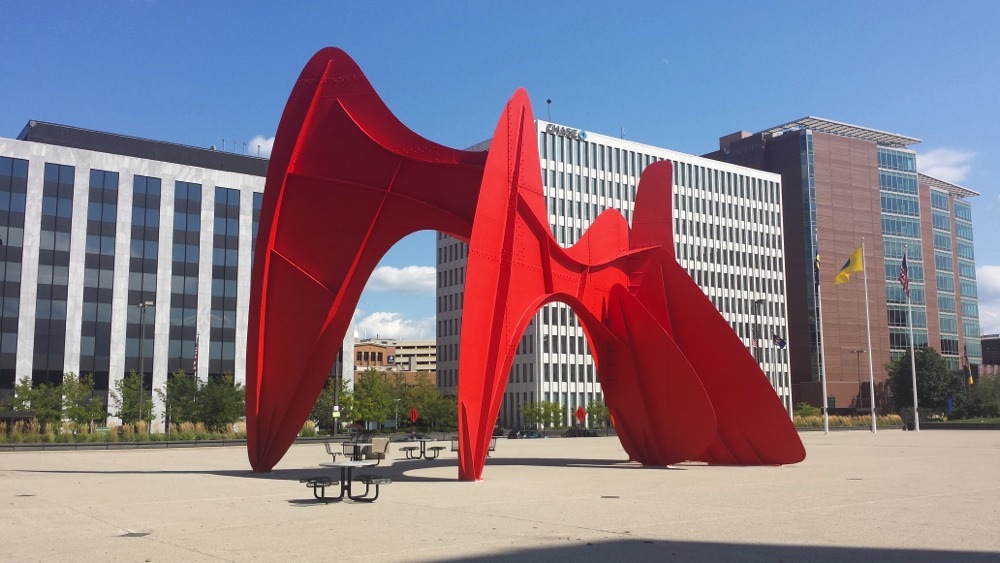
What replaced what was razed? A new civic center set around a plaza, with a new City Hall and County Building. Outside stands La Grande Vitesse, a bright red Alexander Calder sculpture that’s become the city’s symbol. The newer office buildings that rose around the plaza might lack the charm of the city’s historic neighborhoods, but they are an important reminder of an era in America where we were happy to tear down anything considered old.
Fortunately, plenty of historic architecture remains downtown, especially along the Monroe Center commercial corridor and in the adjacent Heartside and Monroe North areas, filled with formerly run-down warehouses and commercial buildings that have been revitalized with apartments, condos, restaurants and bars.

It’s a great place to look at what’s next in architecture and urban design.
There’s a lot of adaptive reuse, green building and neighborhood corridors that continue to see revitalization. Many areas of the city, especially downtown and adjacent neighborhoods, are incredibly walkable, and the city has been progressive on the expansion of bicycle infrastructure. There's also the proposed Grand Rapids Whitewater project, which aims restore the dammed-up rapids of the Grand River and enhance flood protection while expanding recreational access to the river.
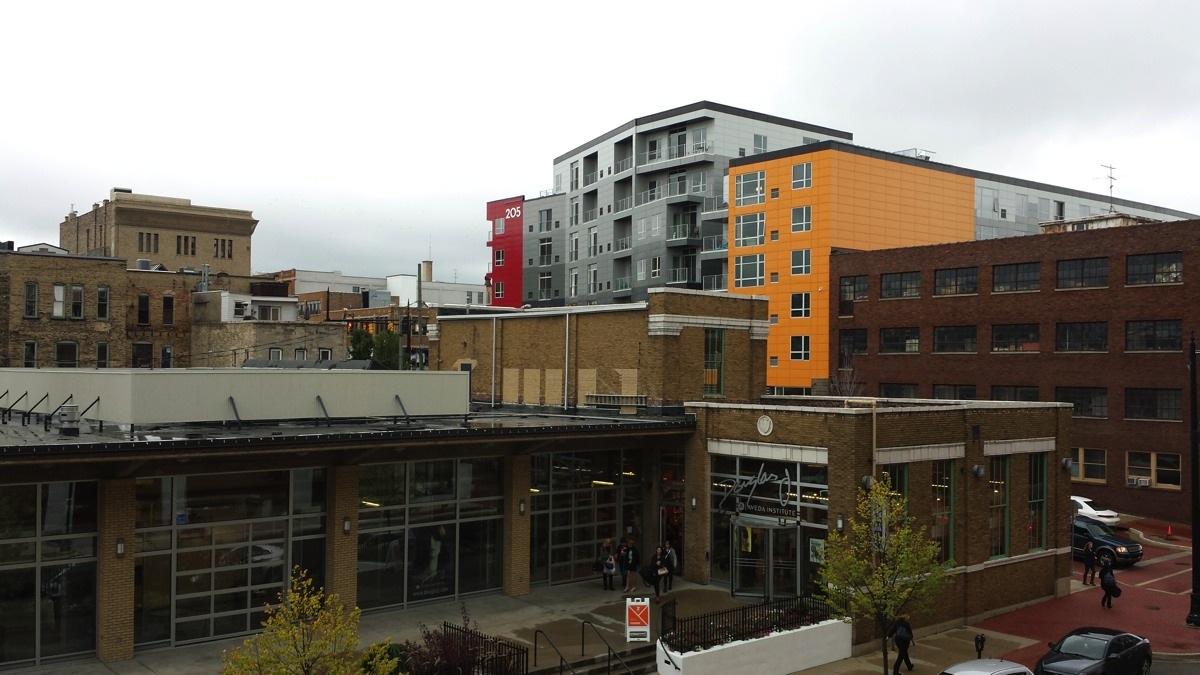
Even the bus stops for the new Silver Line bus rapid transit system have a distinctive, recognizable design (now, if Grand Rapids could only increase the frequency of the bus service and dedicated lanes along the Silver Line, then it will be a true bus rapid transit system).
Grand Rapids, it’s OK to be more boastful and tout your architecture a bit more!
It’s not that Grand Rapids doesn’t promote its architecture as an asset. There are walking tours (this one from Convention & Visitors Bureau needs some major improvement, though). Some might argue that Art Prize is the ultimate architectural promotion since the entire city is essentially an art venue. But there’s so much in Grand Rapids architecturally that really deserves more national promotion, in addition to great beer.
PREVIOUSLY on Route Fifty: “Grand Rapids Learns to Live With Its River Risks”
Michael Grass is Executive Editor of Government Executive's Route Fifty and grew up in East Grand Rapids, Michigan. He's the founding co-editor of DCist.com and has worked previously for Roll Call, The Washington Post's Express, Washington City Paper, The New York Observer and The Huffington Post.

NEXT STORY: DOJ put dollars behind White House push for body cameras
